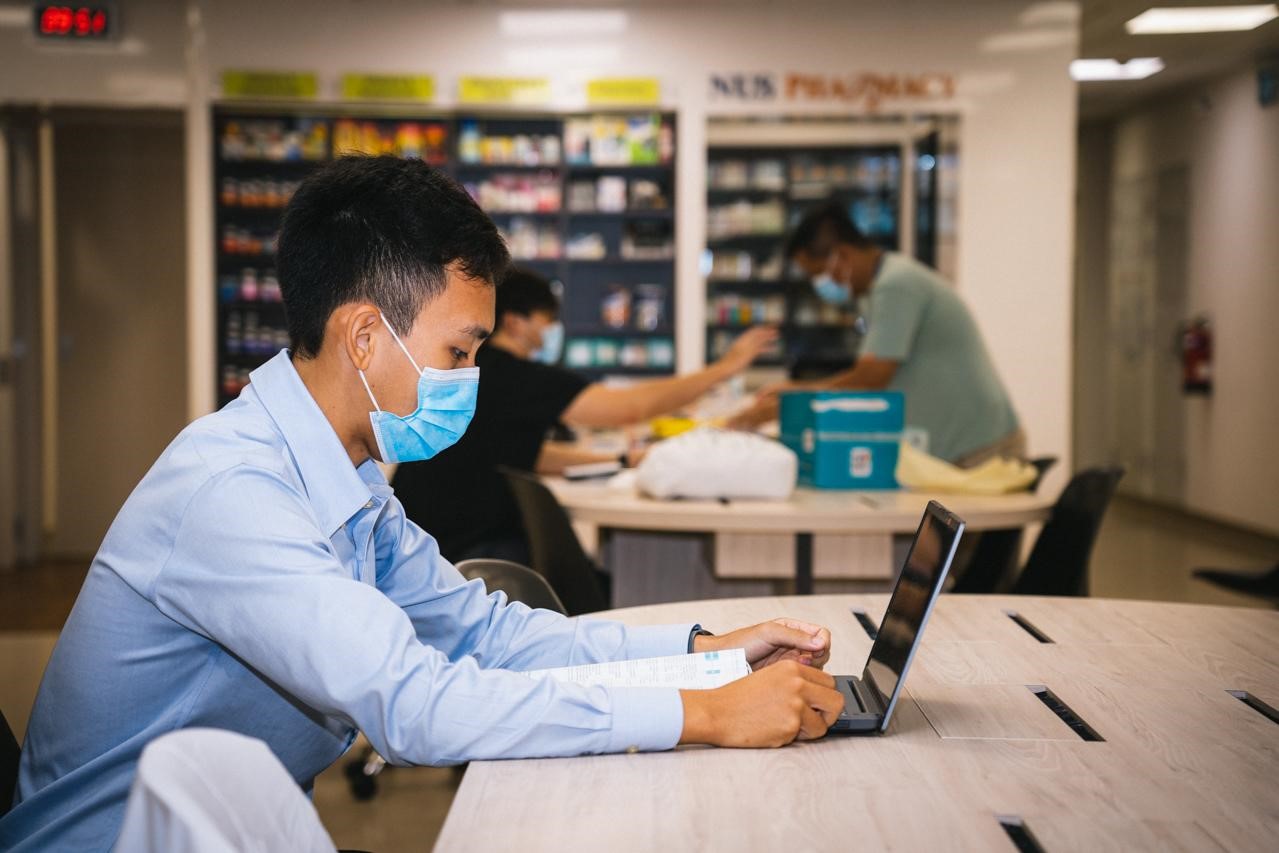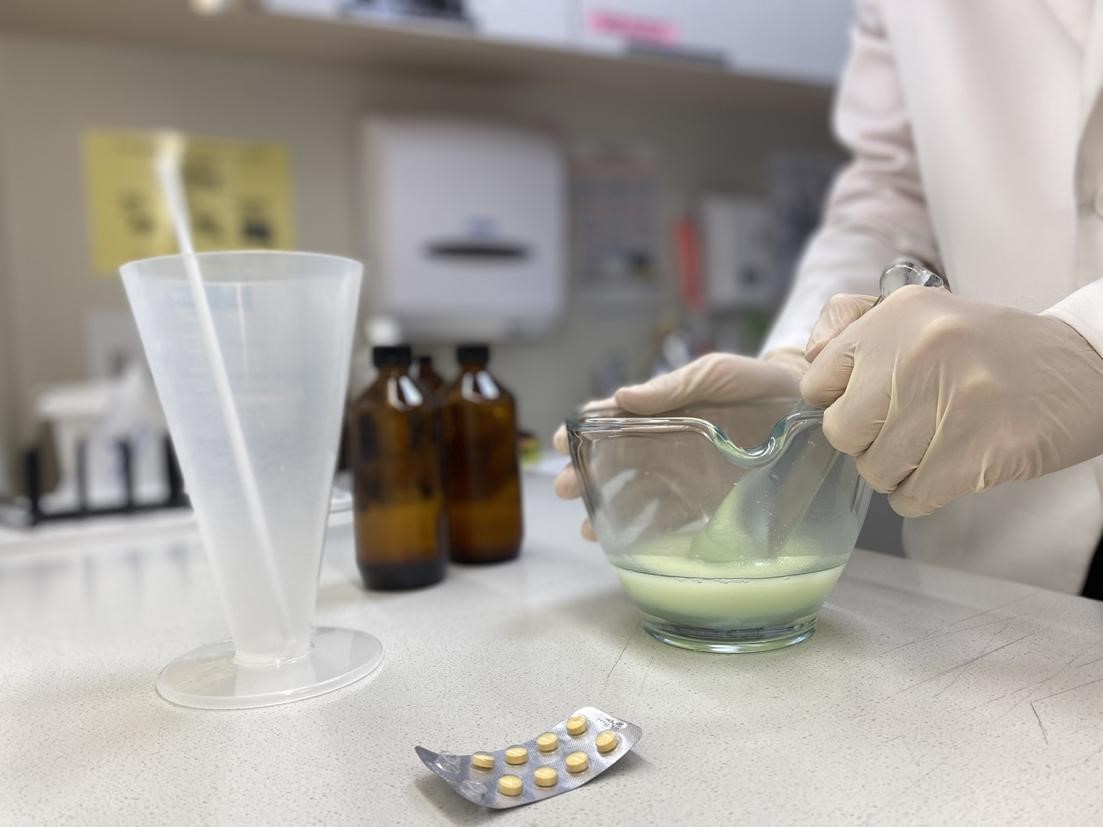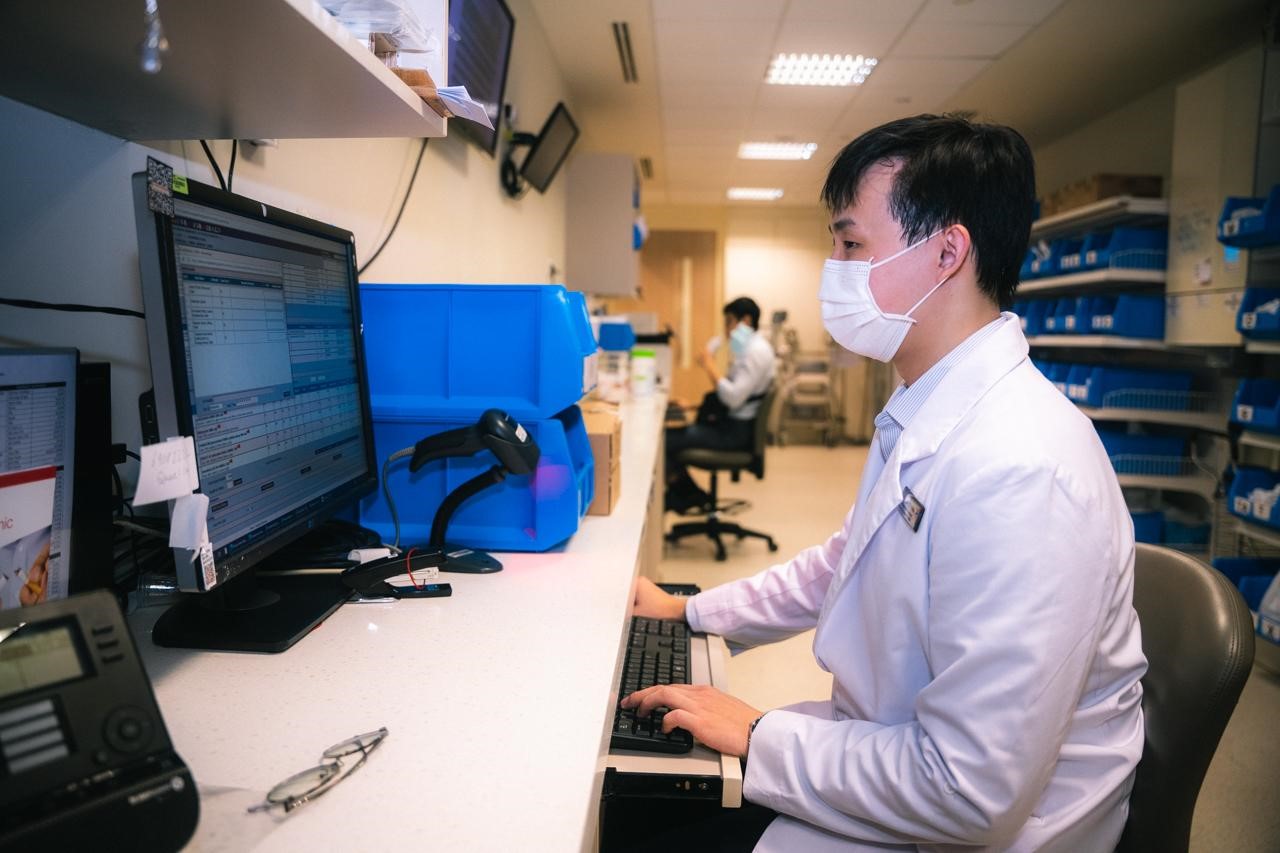Kelvin comes across as scholarly and dignified, almost to a fault–after our interview, he bowed to say goodbye. Otherwise, his maturity and confidence is immediate and magnetic.
More importantly, he is open and reassuring, the kind of personality that would make the most vulnerable patient feel at ease.

As part of his training, Kelvin needs to put on formal wear, even in school.
"My father didn't know I was inspired by the pharmacist who attended to him," Kelvin admits. "I never told him."
His family never questioned his career choice. During the pandemic, however, they became nervous about his safety serving on the frontline..
"I assured them: healthcare professionals would be vaccinated first," Kelvin laughs.
Some believe changing the "boring image" of pharmacists is a tricky thing — there's even a study exploring if
pharmacists have sex appeal. They don't engage in anything "dramatic" or "actionable" enough to generate tensions or do-or-die dilemmas that the public won't normally experience in everyday lives.

Nicholas preparing a syrup in the pharmacy (Image: KK Women's and Children's Hospital)
"I think the public may not fully understand what we do because pharmacists are not someone you see on the forefront," says Nicholas.
"Unlike doctors and nurses, pharmacists do a lot of back-end work. I hope we could raise more awareness and make our role more evident to members of the public."
This is slowly changing, he says. "Many of our long-term patients have a good understanding of what we do, and they are thankful."
In a nutshell, even if we don't see enough pharmacists on TV, there is still much more happening behind the scenes.
Chi Hon collecting a patient's medication sent from the inventory (GIF: Hazel Tang/ RICE Media)
As we move towards a more diverse yet aging future, pharmacists will be there to make sure we take our medications responsibly.
"If patients do not comply with their medications, they won't be able to better control their chronic illnesses," says Nicholas. "This will result in some serious implications."
Diabetes, strokes, heart attacks: pharmacists can step in to prevent them from happening.
"Our paramount role will be to help people prevent illness, so they stay healthy, reduce their personal burdens and healthcare costs in Singapore."
Preventive care will soon be the primary focus of our healthcare system under
Healthier SG. All Singaporeans will get to work with their chosen family physicians to develop personalised health plans. They will also be able to go for regular health screenings and vaccinations.

It's part of pharmacists' job to screen through all medications prescribed by doctors
"What we are building is a multidisciplinary team," adds Chi Hon. "We aim to provide patients holistic care at the community level. On the pharmacy side, I believe we will take on more hats under Healthier SG. Some of us would undergo further training to have prescribing authority, others will work closely with patients to ensure they have no issue with the medications."
No "i" In Healthcare